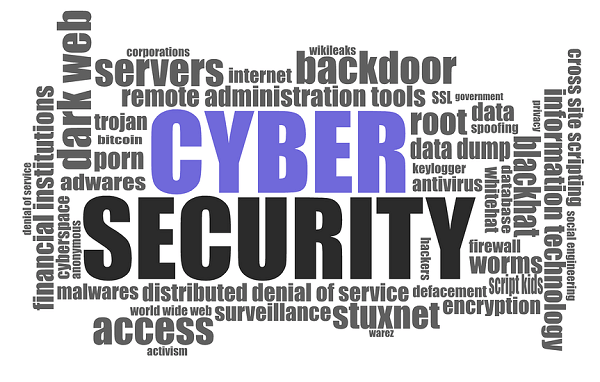The Future of Cyber Security (And Why You Should Care)

Cybersecurity is one of the most important topics that businesses and individuals should be aware of. In this article, we’ll explore some of the key reasons why cyber security is so important, as well as some of the ways that you can protect yourself and your business from cyberattacks.
What is cyber security?
Cyber security is the practice of protecting computer systems and networks from being compromised by hackers. It encompasses a variety of techniques, including preventing unauthorized access to data, detecting and deterring attacks, and responding quickly to incidents. Cybersecurity threats are constantly evolving and growing more sophisticated, so companies must continually update their defenses to stay ahead of the curve.
There are several reasons why you should care about cyber security. First, a breach can result in serious financial losses for businesses. For example, in 2012, Sony Pictures Entertainment was hit with a massive cyberattack that resulted in the theft of millions of dollars worth of data.
Second, cyberattacks can disrupt business operations. For example, in February 2016, cyber criminals attacked the website of Deutsche Bank AG, causing significant disruption to managed file transfer service.
Finally, cyber security breaches can have a negative impact on public opinion. In May 2013, for example, a massive cyber attack on Sony’s PlayStation Network resulted in the theft of private information of millions of users worldwide. This attack sparked outrage among consumers and raised questions about Sony’s security measures.
What are the different types of cyber security jobs?
Cyber security is a growing field that offers many different career options. In order to get started, there are various degrees you can pursue. From a Master of Cyber Security online degree to a Certificate in Cybersecurity from a community college, there is a route that fits your needs. Plus, there are many different types of cyber security jobs that you can pursue. These jobs can include working in a corporate setting, as a government employee, or as a private sector professional.
1. Cybersecurity Analyst. A cybersecurity analyst typically works in a company’s information technology department, assessing the organization’s cyber vulnerabilities and developing mitigation plans. They may also work with computer systems to help protect them from attack.
2. Cybersecurity Engineer. A cybersecurity engineer designs and implements solutions to protect computer systems against attacks. They may work in a company that sells security products or services, or they may work for a government agency responsible for protecting national infrastructure.
3. Information Security Manager. An information security manager is responsible for ensuring that the data and systems of an organization are secure from cyberattacks. They may work for a company that sells security products or services, or they may be employed by a government agency responsible for protecting national infrastructure.
4. Cybersecurity Operations Manager. A cybersecurity operations manager oversees the implementation and management of cybersecurity policies and procedures within an organization. They help to protect the organization’s computer systems from attack and ensure that the organization’s data is safe from unauthorized access.
How can cyber security be improved?
Cyber security is a growing concern for businesses and individuals alike. According to the FBI, cybercrime costs the United States economy $200 billion each year. And while many businesses are doing their best to protect themselves, there are some things that can be done to improve cyber security even further. In this blog section, we’ll discuss how cyber security can be improved and what you can do to help protect yourself and your business.
Improving Cyber Security Starts with Training
One of the most important steps that businesses can take to improve their cyber security is to train their employees. Employees are the ones who will be using the systems and networks, so it’s essential that they understand how to protect them and report any suspicious activity. Additionally, training should include instruction on how to identify fake websites and emails, as well as how to protect oneself from online threats such as viruses and malware.
Another important step in improving cyber security is encrypting data. Encryption is a process of transforming readable information into an unreadable form known as ciphertext. This protects data from being accessed by unauthorized individuals or hackers who might try to steal it. There are a number of different encryption technologies available, so it’s important to choose the one that is best suited for the data and the system being protected.
The biggest cyber threats
The future of cyber security is bright, but it’s important to be aware of the biggest cyber threats. Here are five reasons you should care about cyber security:
1. Economic security: Cybercrime can devastate businesses and cost lives. In 2016, cybercrime cost the global economy $445 billion.
2. National security: Criminals can use cyberattacks to steal military and government data, disrupt infrastructure, and even launch attacks on innocent citizens.
3. Human safety: Cyberattacks can cause physical harm, including loss of life, injury, or damage to property.
4. Privacy: Cyberattacks can expose sensitive personal information, such as credit card numbers and Social Security numbers.
5. Democracy: Political activists and journalists often use cyber tools to communicate with supporters and disseminate information safely.
How to protect yourself against cybercrime
Cybercrime is on the rise, and there’s no telling when it will next strike.
As a result, it’s important to take steps to protect yourself from this type of crime. Here are some tips on how to do just that:
1. Keep up with the latest security patches and updates. Make sure your computer is up-to-date with the latest security patches and software updates to protect yourself from malware and other vulnerabilities.
2. Use strong passwords and security measures for your online accounts. Create strong passwords that are unique, hard to guess, and include at least 8 characters in length. Also, use different passwords for different websites and never use your login credentials for any other accounts.
3. Don’t open suspicious email attachments or links. If an email or link looks suspicious, don’t open it – just delete it without opening it. If you do open it, be sure to scan it for malware using an antivirus program first.
4. Be cautious when using public Wi-Fi networks. Don’t leave your personal information unprotected when using public Wi-Fi networks – always use a password and be sure to keep your computer secure when using these networks. If you travel frequently and need to share sensitive data, consider investing in a managed file transfer service.
In conclusion, cyber security is one of the most important topics that businesses and individuals should be aware of. Cybersecurity concerns include the prevention of data breaches, the detection and deterrence of attacks, and quick response to incidents. There are many different types of cyber security jobs available, and training is essential in order to improve your chances of protecting yourself and your business.








